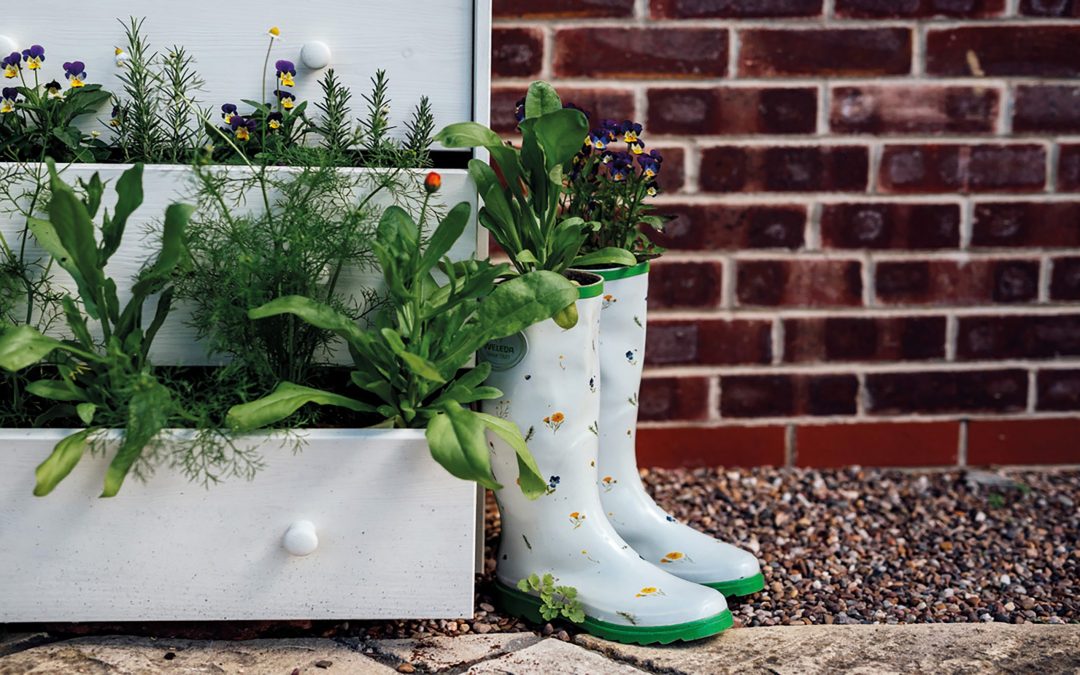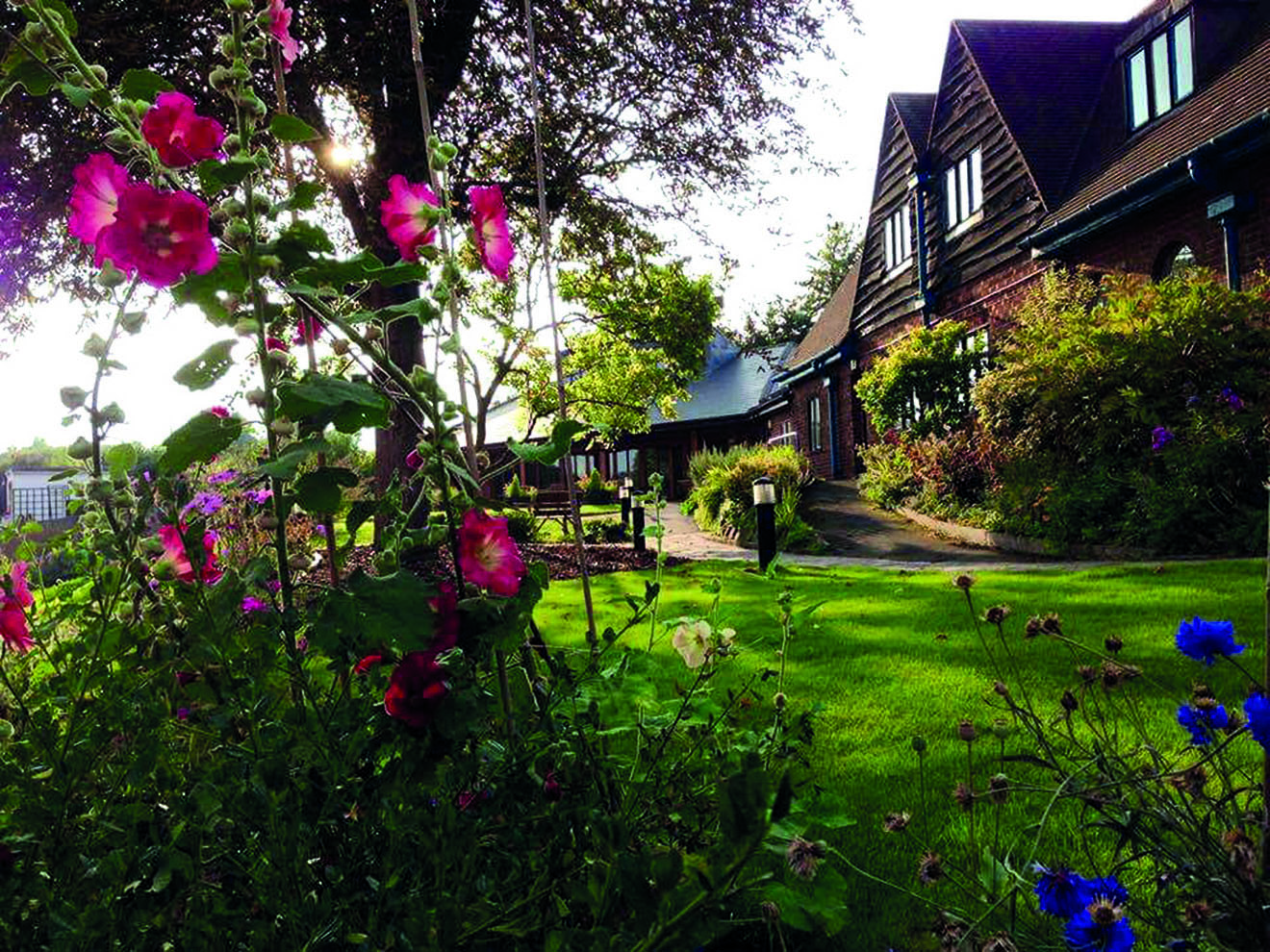Weleda: upholding the founding values
Eminé Rushton visits much-loved household brand, Weleda – the company at the forefront of naturals for close to a century – which is now winning over a whole new generation of responsible consumers

Some brands really feel like part of the furniture. Always there, relied upon, doing their job perfectly – no fuss. For Weleda, the pioneering beauty brand founded in 1921, the part it has played in myriad lives – from baby’s first nappy balm to grandmother’s beloved hand cream – remains unchanged, almost 100 years since it first launched.
Founded by Rudolf Steiner, visionary doctor Ita Wegman, and chemist Oskar Schmiedel, the trio understood that the human body possesses its own remarkable ability to heal itself, but that it also needs a helping hand at times.
To support, not interfere, is the gentle ideology that typifies Weleda – and Steiner developed a unique approach to healthcare, which uses nature’s own ingredients to bolster our body’s health response. This holistic approach – named ‘anthroposophy’ by Steiner – encourages each of us to see ourselves as complete circles of mind, body and spirit, inextricably linked to and affected by the natural world around us. ‘In harmony with man and nature’ is the motto – and it runs through every single part of the Weleda brand.
Upholding the founding values
Those old faithful pieces of furniture, though, can sometimes benefit from being cast in new light. A visit to the Port Eliot Festival, in Cornwall, last summer – where Weleda sponsored the beautiful holistic treatment offering – brought things back into impressive perspective for me. There, I was reintroduced to a brand that I’d always used (the Calendula range for babies is a staple in our bathroom, as is that iconic green tube of Skin Food), but had somehow taken for granted.
I sat, for upward of an hour, with newly appointed managing director, Jayn Sterland, and Claire Hattersley, garden manager for Weleda UK. With them, I began to learn about how things are grown, harvested, protected, and how it is actually possible (though immensely challenging) to uphold the founding values of this iconic brand.
A living philosophy
Hattersley has been with Weleda for 18 years, and she embodies that heart-over-head passion so deeply rooted in the Weleda family. ‘When I was offered the job all those years ago, I remember writing out a “pros and cons” list to decide whether to stay in a well-paid position with good prospects, or head off into the unknown towards my passion. By the time I’d finished, my pros list was double the length of the cons! Apart from the promise of the outdoor life, it was the lure of working within a living philosophy that was the biggest draw, and to have the opportunity to learn about biodynamic agriculture, anthroposophy and natural medicine. It also felt right to be part of a worldwide movement offering some solutions to the many problems of the world, instead of contributing to their escalation.

Claire Hattersley, garden manager at Weleda UK
In hindsight, I think that I was meant to work at Weleda so that my son (not yet born at this time) could easily attend the local Steiner school, which is just up the lane from the Weleda gardens – perhaps it was his destiny, not mine, to work here!’ says Hattersley.
Where there’s a will, there’s a Weleda way
After yet more educational talk, and a dreamy full-body massage with Weleda’s iconic Wild Rose Body Oil, in one of the treatment yurts, I remember rambling back through the fields, marvelling at how this company had fought for its ethics, and efficacy, for so long – even if, as Jayn attested, profit margins sometimes suffer as a result. But, she smiled, ‘That’s the Weleda way.’ She gets it now, she says, even if it took a bit of time… ‘in fact, I’ve been told that it takes every day of 25 years to really understand the brand.’
Sterland is typically humble, but she is very much a Weleda woman at heart, too.
‘My first experience of Weleda products goes right back to childhood. I remember old-fashioned tubes of toothpaste and various lotions in our bathroom used for those bumps and bruises – calendula, camomile and arnica. When my eldest son was born, I was already a fan of the Dr. Hauschka range [Dr. Hauschka’s parent company WALA was founded by one of Weleda’s pharmacists in the 1930s], so I looked for baby products with a similar ethos and rediscovered Weleda.’
‘My background is in marketing and product development, in the world of textiles. As I hit my 40th birthday, I wanted to work more sustainably, less driven by consumerism and the “next big thing”, so I left the crazy world of fashion and found, in Weleda, a company whose values are grown out of being responsible for the impact we have in the world.’
Weleda is one of the world’s largest users of natural and organic raw materials in the world of cosmetics, purchasing over 4,700 tonnes from fair trade farming partners and suppliers, last year. Having full traceability within the supply chain is of paramount importance to them.

‘By growing them ourselves in our five herbal gardens, or through working with fairly traded partnerships and projects around the world, we can control our supply chain,’ says Sterland. ‘These partnerships usually start out as local projects, where Weleda works with local farmers and a distiller, and, once established, profits are ploughed back into the project until it becomes viable. It then becomes a partnership. We have over 50 partnerships globally and aim to set up two new projects a year, usually in areas of low mechanisation, as we believe connecting humans with the growing of the plants makes for better extracts.
Once harvested, we seek to process the material close to where the plants are grown, to minimise our carbon footprint and to preserve the precious etheric oils. For example, our essential rose oil is made from damask roses grown organically in Turkey. In 2001, Weleda created a pioneering project that inspired hundreds of Turkish farmers to switch to the sustainable cultivation of organic roses. What began as an initiative to support sustainable rural development, became a partnership of regional significance – over 300 farmers have switched to organic cultivation, their land now free from chemical pesticides and sprays.
The fairtrade farming partnership with Weleda protects their income, culture, traditions, communities and landscape, and ensures fair wages and working conditions,’ says Sterland.
Smells of roses
The Turkish rose project is the world’s largest organic rose project: a third of the world’s crop for Rose Absolute perfume is produced here organically for Weleda – and Weleda uses almost one-fifth of the entire Rose Absolute on the world market. ‘It takes three tonnes of fresh damask rose petals, or three million flowers, to make just one litre of the essential oil,’ says Sterland.
The year that Sterland was appointed CEO, the company’s bestseller, Skin Food, celebrated its 90th birthday – and it was her genius idea to create the now well-known Nice Cream Van, and drive it around festivals, lidos, beaches and surf competitions – ‘quite literally spreading the word’, says Sterland. ‘Skin Food embodies Weleda’s sustainable approach to product development – get it right, and it stands the test of time. Made from natural ingredients of sunflower oil, blended with beeswax and herbal extracts of viola tricolor, calendula, camomile and rosemary, it’s also a great price (£10.95 for 75ml) – a tube lasts for ages and it has a great name, too!’
Port Eliot was a turning point. Six months later, I visit the Weleda garden in Ilkeston, Derbyshire, the real beginning. There, once again, it’s Sterland who echoes my thoughts… ‘As I get older, I realise what a visionary our founder, Rudolf Steiner, was. He left us with a body of work, including over 6,000 books and lectures, from which there’s so much to learn about human development, education and living healthily.’

Weleda’s headquaters in Derbeyshire
How to live wholly – to furnish our lives with purpose and passion, and learn to better support our beings. That old furniture, then, is not just made to last, it is designed for life. And living is the thing.
Psychologies will be collaborating with Weleda in a year-long series of columns – ‘In the Garden with Weleda’. Read the first one here.
To find out more about Weleda visit weleda.co.uk.
In partnership with Weleda. Images: Weleda.









